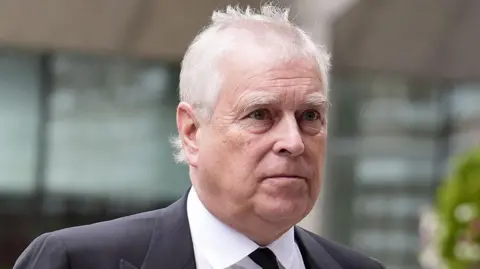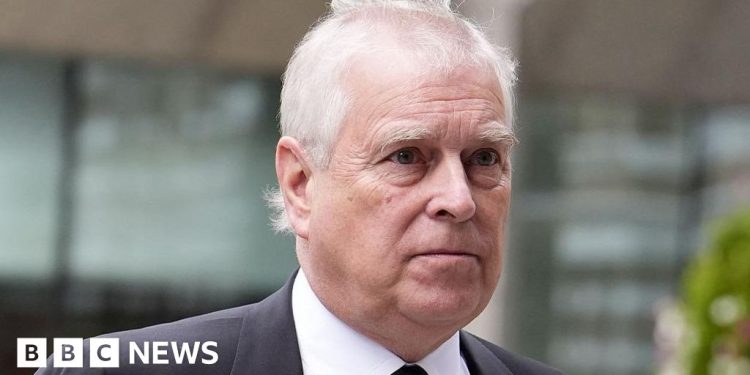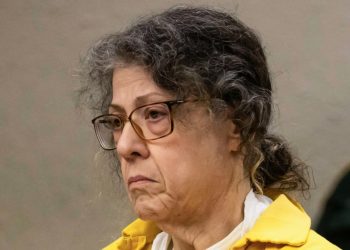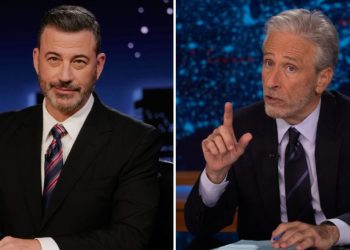 AFP via Getty Images
AFP via Getty ImagesPrince Andrew should be summoned before MPs to give evidence about his lease at Royal Lodge, Liberal Democrat leader Sir Ed Davey has said.
It follows calls for greater transparency in the royal finances and in the independently run Crown Estate, which leased Andrew his mansion in Windsor.
Sir Ed called for a select committee inquiry to “properly examine” the Crown Estate during Prime Minister’s Questions (PMQs) in the Commons, with Prime Minister Sir Keir Starmer responding that it was important there was a proper review of all Crown properties.
Buckingham Palace has been contacted for comment.
Although nothing prevents a House of Commons committee from inviting Prince Andrew to give evidence, an appearance in such a setting by a member of the royal family would be unprecedented. It is not known whether the committee would be able to force him to do so.
In a written request to the Public Accounts Committee (PAC) – which scrutinizes public spending – Sir Ed said the proposed inquiry should take evidence from “everyone involved” in Andrew’s accommodation.
“The public is understandably questioning whether this is an appropriate arrangement on the part of the Crown Estate,” he said.
A PAC spokesperson suggested it would not immediately launch an investigation, saying its program was “currently full until the new year”.
They added that the National Audit Office would review the Crown Estate’s annual report in the next financial year, “as part of its normal program of work”.
Speaking to BBC Newsnight on Wednesday, Liberal Democrat MP and PAC member Sarah Olney said the “question about rent paid” was “absolutely a legitimate investigative move for the PAC to consider whether this was the best deal for taxpayers”.
She added: “We have the power, if we wish, to summon Prince Andrew to come and give evidence to us so that we can find out more about this.”
Attention has increased on Prince Andrew – who had already renounced his royal duties – after he renounced his titles last week following growing pressure over his links to the late sex offender Jeffrey Epstein.
Sir Ed’s question came after a document seen by BBC News confirmed that the arrangement for the Royal Lodge means the prince has only ever paid a nominal annual rent on the property, and that this may not be required as part of his deal with the Crown Estate.
The deal meant that instead of paying annual rent, Prince Andrew made large lump sum payments up front, including for renovations.
In effect, those payments – which amounted to around £8 million – meant he was buying out his future rent obligations for the duration of the 75-year lease.
Part of the deal was that if he left the lease early, he could get back some of the money he had paid up front, with this amount decreasing over time up to 25 years – at current rates it amounts to around £186,000 for each remaining year until 2028.
Former Crown Estates Commissioner Lord Curry told BBC Radio 5 Live’s Matt Chorley that the estate would be “honor bound to honor that lease” and that any investigation would be a “waste of time and money”.
“They can’t do anything about the lease without going back on its terms, and that would be inappropriate,” he said.
The Crown Estate is a property business owned but independently managed by the monarch, with profits going to the Treasury. The profit level is used as a benchmark to calculate the funding provided by the government to the royal family under the Sovereign Grant.
Baroness Margaret Hodge, who chaired the public accounts committee between 2010 and 2015, said the Royal Lodge deal “looks like a rotten deal”.
“The Royal Lodge is managed by the Crown Estate (which) has a duty to maximize the income it raises because that goes to the taxpayer,” she told BBC Radio 4’s Today program on Wednesday.
She also called for greater transparency regarding royal finances in general.
“We don’t know,” she stressed, “there is no transparency, so inevitably we are skeptical and we ask questions.”
“All we have here is another specific problem that is an example of a much larger problem, which is that royal finances are mired in secrecy and the lack of transparency associated with those finances ends up leading us to ask all sorts of questions.”
The royal family has three main sources of funding in addition to private income.
The Sovereign Grant is funded by the taxpayer while the Duchies of Lancaster and Cornwall provide income to the King and Prince of Wales respectively.
The royal family’s annual financial statements include details of the Sovereign Grant – which funds official functions, the maintenance of occupied royal palaces and, most recently, the Buckingham Palace redevelopment programme.
Separate reports are published for the two duchies which are described on their respective websites as private domains.
Baroness Hodge said: “There is this muddy land… in my opinion they are public because they were given by the state to the royal family for the purpose of providing for them.”
The official website of the Duchy of Cornwall states that the Prince of Wales pays tax on this income – which is not an obligation, but something he does voluntarily.
The King also voluntarily pays the Duchy of Lancaster’s income tax.
The king ended his financial support for Prince Andrew last year as he faced increasing public scrutiny over his links to convicted sex offender Jeffrey Epstein.
The prince announced he would stop using his title Duke of York earlier this month. However, York MP Rachael Maskell, who had the Labor whip suspended in July, is presenting a proposal to the House of Commons on Wednesday for a new law that would allow the king to remove the titles.
This proposal would give the king the power to formally strip the prince of the duchy.
The Title Removal Bill has already been introduced to Parliament in 2022 and would require government support to become law.
This week also saw the publication of Virginia Giuffre’s posthumous memoir, which claimed Prince Andrew had sex with her at Ghislaine Maxwell’s house when she was 17. Andrew has always denied these allegations.










